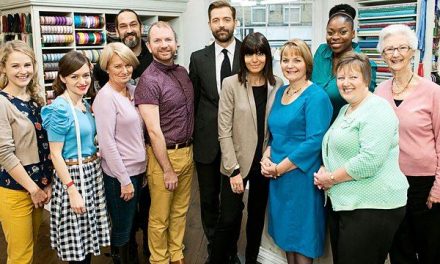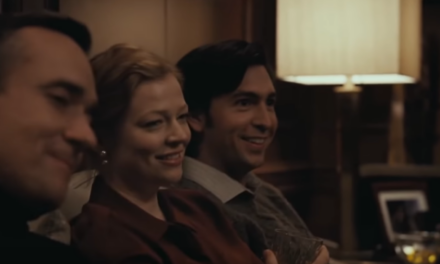The BBC’s charter renewal is due in 2016 but traditionally the years and months beforehand are full of political jostling, public pronouncements and secret (and not so secret) lobbying.
In this case, we don’t even know what kind of government will be dealing with it but the whole process is likely to take place in a thoroughly febrile atmosphere (the report into the Savile scandal is yet to come). And even some things which would normally be reasonably stable have the quality of known unknowns
THE CHAIR OF THE BBC TRUST
I don’t think the process has yet been completed ie the Queen has not yet appointed the single candidate she is offered by the Secretary of State for Culture, Media and Sport. (Sadly Her Majesty will not be offered Professor Toby Miller’s name otherwise I’m sure the outcome would have been different). But Rona Fairhead has cleared the hurdle of approval by the House of Commons’ Culture, Media and Sport Committee and unless some scandal breaks out (see Daily Mail below) she seems likely to be appointed.
Fairhead gave a reasonably cool set of responses to some fairly mild questioning (her predecessor Chris Patton used to grumpily patronize his ex-colleagues from a great height and drive them into a frenzy) and she seemed to get away with the fact that she is a woman. She declared her devotion to the Today programme and the News at 10 and she managed to mention The Honourable Womanalong with Sherlock and Dr Who (the fictional programmes of choice for any public figure who has to talk about BBC drama). And it may be that her background in law and finance will give her some of the tenaciousness, focus and forensic skills necessary for the role.
But her experience is with multinational companies including Pearson, PepsiCo, ICI, and the HSBC. Whatever one thinks of these companies, working for them or being on their boards won’t have given her experience of working in a public service environment. And it’s unclear what public service broadcasting might mean to her beyond ‘objectivity’ in journalism and good programmes.
So here’s our first unknown.
BBC PRODUCTION – THE SPINOFF
This is the dog that hasn’t really barked yet. John Ellis gave CST readers a really clear account at the end of July about this proposal by DG Tony Hall to separate BBC Production from BBC Broadcasting and to withdraw current guarantees of production work. I’m not going to repeat what he’s said (url is below ) but I am interested in the reasons he gives for finding the proposal worth exploring which are (I summarise)
- More power to producer to put together co-productions
- the payment of market rates to key talent along with profit participation
- the possibility of niche production units within BBC Worldwide. BBC Worldwide of course works with the BBC brand but not with its public service commitments and as Ellis says its market driven activities can be at the expense of public service aims
In return for this, BBC Production would no longer be financed by the licence fee.
Over the summer there seems to have been relatively little debate about this proposal. But the RTS Journal Television (September 2014) has a couple of articles about it – ‘Hall lets the market loose’ and ‘The UK’s next mega-indie?’. Like Ellis, the reasons given for support largely focus on the need to attract, keep and reward ‘talent’, through salaries and equity stakes, without being ‘savaged by competitors and the critics in the press’. PACT (Producers Alliance for Cinema and Television) supports the proposal wholeheartedly and thinks it will ‘liberate the BBC’. Former Managing Director of Tiger Aspect, Charles Brand thinks that arts and religion could also prosper under this commercial regime and that “It could also make it easier for bonuses to be paid and to avoid the Daily Mail outrage stories”. In all of this any broad vision of what the BBC should be doing gets rather lost. “The public just wants the best shows” says Patrick Younge, former BBC Vision Chief Creative Officer (this means he was in BBC Production) but now founder of his own company, advising on managing change, WeCreate. And of course we know (don’t we?) that HBO, Netiflix and maybe in future Amazon make the best shows so it would seem that the best thing to do is to set up BBC Production so that it can act like them.
I always rather admired Greg Dyke’s off-the-cuff remark when he was DG that he wasn’t in post to give money to indie television makers. This was clearly tactless and I’m sure he apologised but it had some truth. The DG’s job is to provide the British public with a service which will famously inform, educate and entertain. So it’s interesting that so many of the reasons for this spin-off seem to benefit the talent in the most direct ways – money and profits. But more importantly, the proposal seems to be based on three of the great premises which have driven change in our public services since Thatcher, transforming the health service, education, transport, water, the energy sector, the post office, etc etc.
These premises are
- Private systems are best because they are driven by competition. Just as we will get better education because schools are freed of local authority control and support, so we’ll get better television programmes when BBC Production is free to compete.
- Talent should be paid what it’s worth which will be dictated by the market (less talented people and smaller companies might be paid less but that’s just the way it goes).
- Issues of accountability, diversity, representation, accessibility, public good etc can be dealt with by treating users as consumers.
I don’t have the same knowledge as John Ellis and others about BBC Production or indeed the whole production sector (nor of course do most licence fee payers which makes debate difficult). But I do wish that some of the arguments were less self-serving on the part of the ‘talent’ and showed some understanding about why drama/entertainment might be an important element of a psb offer. I am not convinced about competition as the driver of quality. And I am fearful that the proposal to set up this mega-indie is a short-term way of buying the Government off in charter negotiations. And that it means in the long term, BBC Production can be entirely privatised following the fourth great premise: ‘if it makes money, sell it off’. This would make it much easier for a future government to agree with Rupert Murdoch that public service broadcasting should be confined to the bits that commercial companies don’t want to do. And that in the even longer term it can be abolished altogether.
So this is my second known unknown.
THE LICENCE FEE
In her parliamentary grilling, Rona Fairhead said several times that the licence fee “is the most appropriate way to fund” the BBC, although after a number of questions she agreed that other options would be considered. However, one only has to go to a media industries event to find that media types fret more about the licence fee than Daily Mail journalists and continually seem to be campaigning for change even though no-one can agree on what that change should be.
One of the mantras of this debate is that the BBC must live with change, a fact which it is impossible to disagree with. And indeed one could argue that the BBC in the digital revolution has not only been learning to live with change but supported a lot of others who were trying to do that too. It did so by being able to apply public service principles to the changing situation. But amid the current clamour for change (very often based on unacknowledged self-interest) it very difficult for the BBC, a national institution at a time when the nature of the UK itself is being seriously challenged, to argue its case without being defensive and conservative.
So while the license fee is a clear known, my third unknown is the attitude the BBC itself will decide to take and how far it can promote a self-confident public service vision without coming over as arrogant and irrelevant. I live in hope!
Useful links:
IS THIS THE END FOR BBC PRODUCTION? by John Ellis
TIME FOR CHANGE Patrick Younge, WeCreate Associates
Royal Television Society Television September 1914
The Daily Mail is on the case of Rona Fairhead
Christine Geraghty is an Honorary Professorial Fellow at the University of Glasgow and an Honorary Research Fellow at Goldsmiths, University of London. Her publications on television include a contribution to the 1981 BFI monograph on Coronation Street; Women and Soap Opera (Polity, 1991); and My Beautiful Laundrette (I B Taurus, 2004). Her BFI TV Classic on Bleak House (2005) will be published in October 2012. Her BFI TV Classic on Bleak House (2005) was published in October 2012. She is on the editorial board of the Journal of British Cinema and Television and sits on the advisory boards of a number of journals, including Screen.





